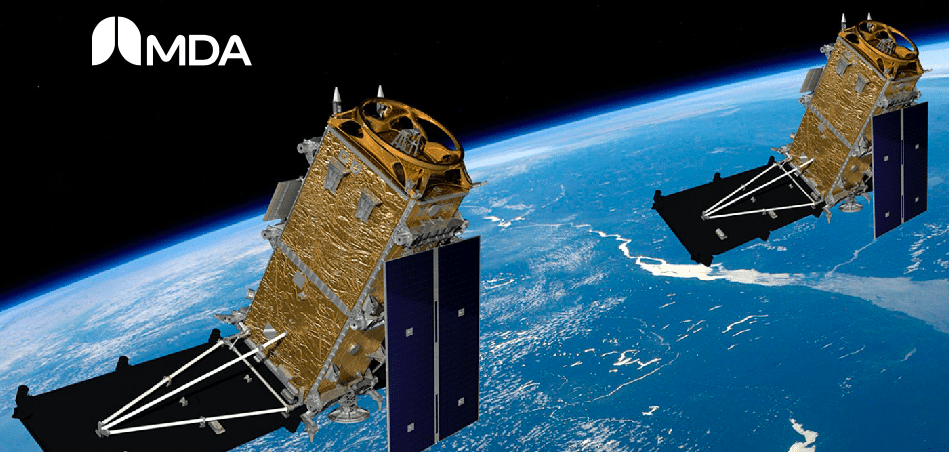
The stock has dropped plenty in the past month and a half, but tailwinds in the satellite industry should propel Canadian space tech company MDA (MDA Stock Quote, Charts, News, Analysts, Financials TSX:MDA) to higher heights, says John Zechner of J. Zechner Associates, who recently gave the nod to MDA as one of his best ideas for the year ahead.
MDA, which has business in robotics, satellite systems and geointelligence, was travelling along at the $16 mark for a number of months before the stock dropped sharply starting in mid-November, falling as low as $9.05 before rising slightly to now around $9.50. That put MDA down 32 per cent for its inaugural year after IPO-ing last April at $14.00 per share.
The recent drop in share price appears not to be related to any specific company news, with Zechner saying the cause is more likely a spate of tax loss selling.
“[It’s one of] these smaller names that have been hit hard at the end of the year with tax selling. It’s the old MacDonald Dettwiler that was turned into Maxar which then spun out their robotic manufacturing divisions and then came public this year as MDA,” said Zechner, president of J. Zechner Associates, who spoke on BNN Bloomberg on Friday.
“When you look at it, they’ve got growth going forward, they’ve got built-in programs and this whole LEO, the low-Earth orbit satellite launching is going to go forward and that benefits companies like Maxar and their software simulation and all of that, but the manufacturers of the components, which is what MDA does, they have growth in that,” he said.
“They’ve got some programs that over the next five years you’re looking to guarantee something better than 20 per cent annual growth in earnings,” Zechner said.
MDA is currently running three main programs: first, a contract with the Canadian Space Agency for the design of a Gateway External Robotics Interfaces (GERI) for the Canadarm3, itself to be a part of the moon-orbiting space station, Lunar Gateway, second, a contract with satellite company Telesat and, third, a contract with the Canadian Surface Combatant (CSC) project for a laser warning and countermeasure system, which was awarded to MDA this past February.
In recent MDA news, the company reported with its third quarter financials that its MDA Geointellligence segment had released first details of its Earth observation mission satellite, which the company said should provide “the broadest area coverage on the market, changing how, when and what can be seen,” while the company’s Robotics and Space Operations segment announced new contracts for sensors and altimeters. Looking ahead, management has guided for 2022 to include revenue between $750 and $800 million, which would represent year-over-year growth of between 50 and 60 per cent, and adjusted EBITDA between $140 and $160 million.
“In the third quarter MDA delivered another strong performance highlighted by solid adjusted EBITDA, growth in backlog and double-digit revenue expansion on a year-over-year basis,” said Mike Greenley, CEO, in the company’s third quarter press release on November 12. “Operationally, the company continued to execute with significant progress and developments on all three of our flagship programs. With solid financials, operational momentum and growing backlog and demand in Q4 and heading into 2022, we remain focused on delivering long-term growth and shareholder value.”
In its financials, MDA’s third quarter featured revenue up 13 per cent year-over-year to $111.3 million and net income of $4.0 million, up six per cent. The revenue growth was attributed to increased volume in its Satellite Systems as well as development of its Canadarm3 work.
Overall, Zechner said he likes where both MDA and the space and satellite sector are headed.
“They’ll be generating positive cash flow and their balance sheet is in good shape and it’s reconstituted. I don’t think it has a big following right now but I like this move in space generally and [MDA] is a reasonable way of playing it,” Zechner said.
“The amount of information we’re getting from the LEO satellites constellation is huge and it’s being used more in a variety of business applications and that’s just going to increase over time, and this is a good way to play it,” he said.
“Urban planning, businesses — let’s face it, the data from space is not only used in defence and areas like that. It’s expanded so much beyond that, and you can’t get that [from a] drone. Looking at the information you get off a satellite, it’s hugely different. You can simulate it. So, more of these things are going into space. It may get a little bit cluttered at one point but while they’re all still going up MDA are the guys making a lot the parts, and so they should continue to benefit,” Zechner said.
Leave a Reply
You must be logged in to post a comment.




 Share
Share Tweet
Tweet Share
Share




Comment